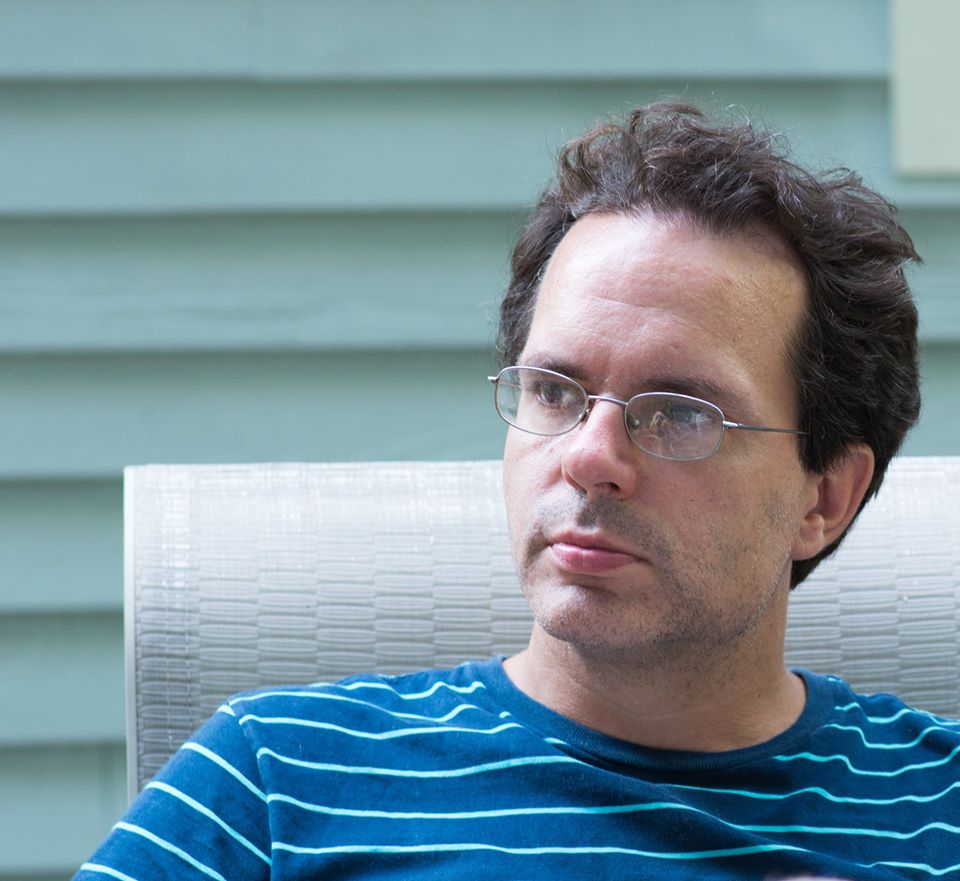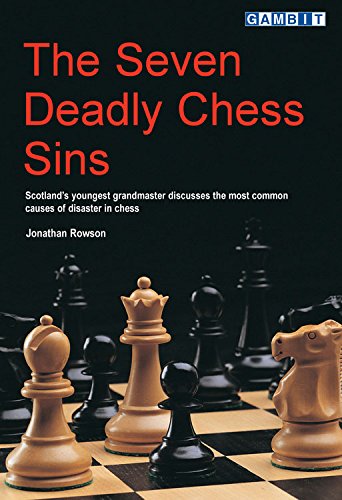The popularity of podcasts is at an all-time high. Certainly, they meet the demands of today’s fast-paced and competitive world. Whether you are commuting, doing household chores, or maybe even working, podcasts are a great way to learn more about a plethora of topics without having to find dedicated time for the same. But what if you are a chess aficionado and are looking for some chess podcast recommendations? Perhaps the first and the most common suggestion that you will get is the Perpetual Chess Podcast by Ben Johnson. Launched in late 2016, Perpetual Chess Podcast is undoubtedly one of the leading interview shows in the chess world. Combining his experience as a 2100 chess player and coach with his love for books and history, Ben asks just the right questions to his guests that help him unearth wonderful stories while also retaining an educational value to the conversations – all this without compromising on humour and fun!
As you scroll down, what will transpire is a role reversal – the perennial interviewer turns an interviewee! Ben talks about various aspects of Perpetual Chess and shares some key takeaways from the podcasts. He outlines his favourite chess books – not just the classics but also some modern gems. Towards the end, Ben sheds some light on his life away from chess. Keep reading to know more about this unique personality on the occasion of the International Chess Day!

Shubham Kumthekar: How did you get introduced to the game of chess? I am sure our readers would love to know more about your personal growth as a player!
Ben Johnson: I was introduced to chess by a family friend and learned the rules at the age of 6. I loved the game immediately, but I never found anyone to play with until there was a chess club at my school when I was 12. That is when I started playing tournaments. From that point on, my interest was firmly established and I loved the game ever since.
When and how was the idea of the Perpetual Chess Podcast born?
Around 2015, I was really into podcasts and was getting back to teaching chess after years spent doing other stuff professionally. I wanted to be able to learn more chess while on the go, and there weren’t a lot of chess podcast options. That is how the idea of Perpetual Chess Podcast came into being. However, the podcast didn’t actually begin until December 2016, so it actually took me a long time to stop dragging my feet and to start Perpetual Chess!

What were the biggest challenges in kickstarting the podcast and what challenges do you face now as an established podcast in the chess world?
A: Well, as regular Perpetual Chess listeners might have heard me say, I am not especially tech-savvy. So the biggest initial obstacle was definitely the technical side of creating the show. It was finding a professional, Mathew Passy, to do the editing and mixing of the show, which enabled me to take the Perpetual Chess idea from just brainstorming and procrastinating to actual existence.
Now that the show is established, the biggest challenge is often guest sequencing. I release one episode per week and do a monthly ‘bonus pod’ where I and a rotating cast of friends recap a great chess book. I often have to juggle guest interviews that are (a) firmly scheduled (b) tentatively scheduled (c) haven’t heard back from someone who initially expressed interest (d) straight up ignoring my email (e) interesting people eager to be guests on the show but I haven’t found time to fit them in yet.
I am always able to find someone interesting to interview but it can be tricky to find one and only one guest per week, especially with so many chess authors releasing interesting books to discuss.
You are evidently fond of chess books! Which are some of your personal favourites, not just for improvement but also with respect to chess history, openings, etc?
Like a lot of my guests, I gravitate to the ones that hit me in the heart when I was a teenager and was wholly engrossed in chess. That includes Capablanca’s Best Endings by Irving Chernev, Fischer’s 60 Memorable Games, and Masters of the Chessboard by Richard Reti.
Of course now for the show, I read tons of modern books. And honestly, if you remove the nostalgia from the equation, they may even be better. Some recent favorites include Game Changer, On the Origin of Good Moves, Timman’s Titans, and The Anand Files. But I can’t leave out a book that is neither wholly modern nor ancient, but it is probably my #1 favorite – The Seven Deadly Chess Sins by GM Jonathan Rowson.

You have interviewed about 160+ guests now, and chess improvement forms an integral part of most of your podcasts. Without giving away too much, can you tell us a couple of improvement advices by your guests that you found extremely useful for yourself or for your students?
For most of us, chess is just a hobby. So at the end of the day, I have to first and foremost echo the advice that GM Jan Gustafsson and GM Erwin L’ami (coming soon) have given on the show – Study chess in a way that you enjoy it!
When I go jogging, I am a guy that doesn’t try to go super fast, and instead I just slowly grind out the 4 miles required to keep me reasonably healthy. I have to say that my chess study is in the same vein – I enjoy solving medium difficulty (for me) tactical puzzles, learning openings, and playing through GM games, but I am rarely inspired to solve difficult endgame studies or to do intense calculation work on my chess. It may be to the detriment of any chess improvement that I might see, but for a 43-year-old working dad, it is the way I approach chess.
The adult improver podcasts are a great concept. What are your thoughts on adult improvement in general?
Thank you. Requests from listeners really pointed me in the direction of the adult improver interviews. I have to say: The longer I do these podcasts, the more appreciation I have for just how difficult it is to improve significantly as an adult, especially once you (a) have hit some sort of plateau (b) are over the age of 30 and have job and family responsibilities. If you fall into these categories, I think you have just got to cut yourself some slack. Work hard on chess if you are inclined, but keep the goals modest like boosting not more than 200 points from your current rating. If you achieve that goal, then you can always make a new goal. But I see a lot of people set distant goals which can ultimately be disheartening.
What can you tell us about your life away from chess?
Even before Corona, my life was 95% work and family, but now its 100%. It suits me well, though. When not playing with the kids, I like reading books, watching shows with my wife, following the NBA and Major League Baseball, along with lots of chess, of course.
You run the podcast, are involved in chess coaching, plus you have a young family as well. It’s truly inspiring that you find time for all of these – maybe you can share some time management tips with our readers?
That’s nice of you to say, but I am no busier than your typical working parent! My work is only in the field of chess: Running after-school programs, doing some lessons, and the podcast. So this leads to a schedule where I often have some hours to myself when the kids are at school/daycare. Usually, I have no shortage of things to catch up on during those times, but I am not even the hardest working person in my family – that honour goes to my wife!
What are your future plans for the podcast and also in general?
I am pretty happy with where the podcast is, although I am always hoping to improve the product and grow the audience and, of course, to grow the revenue. Beyond that, I have lots of chess-related ideas that I hope to be able to pursue. They range from book ideas to additional podcasts to YouTube channels. I can only take on one project at a time, so I am hoping to commit to something soon. But with my kids staying home from school/daycare due to the virus, any new project may need to wait a while longer.
Blitzkrieg
One dream guest you wish to have on your podcast…
Beyond the obvious names, someone like GM Jan Timman checks all the boxes for me. He is a legendary player, but his books make it clear that he is a writer at heart, with keen observations and awesome, poetic stories.
Three chess players of all times you would love to have dinner with…
Alexander Grischuk… do I have to invite two more?? Okay fine! We will add Mikhail Tal and Judit Polgar as well.
Your favourite non-chess book…
Wow, I read a lot, so this is a tough one. I finished Yuval Noah Harari’s Sapiens recently and was kind of blown away. So at the risk of recency bias, I will go with it.
A life quote that you live by..
Life and chess advice both – First, do no harm.
– – – – – – – –
The Perpetual Chess Podcast can be listened to and followed on Apple Podcasts, Spotify, omny.fm, YouTube, and all other major podcast platforms!
You can follow Ben Johnson on Twitter (his preferred social media platform), the Perpetual Chess Podcast Facebook Group, and on Instagram.